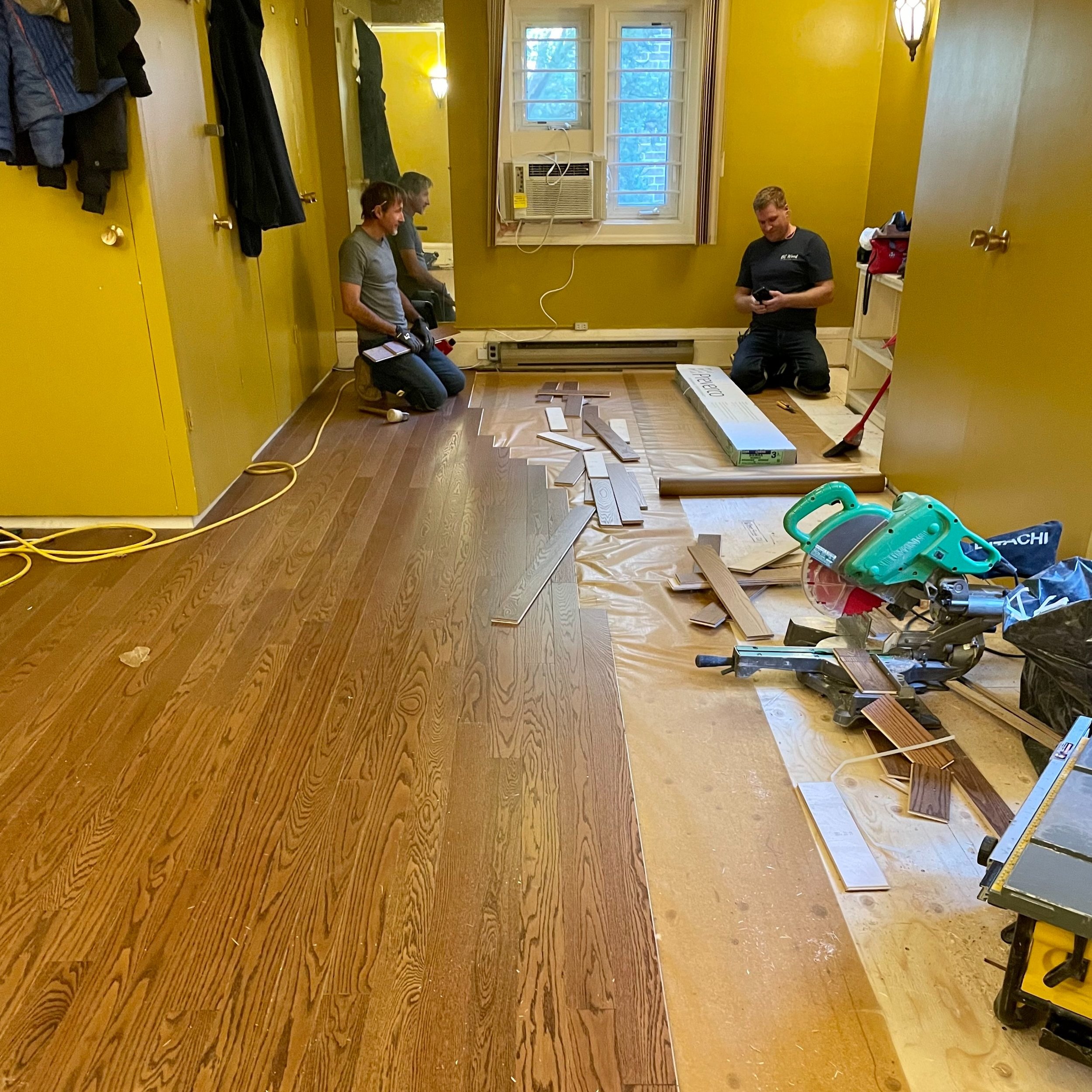Dear People, Neighbours, and Friends of St. Thomas’s,
“There’s no shame in it.” Whenever I hear this phrase, it’s usually in reference to something that in fact does feel shameful. It’s meant to be a reassuring phrase, and I’ve used it myself, but I sometimes wonder if, in doing so, I’m implicitly telling someone not to feel what they are, in fact, feeling.
Here’s a random example, apropos of nothing: Bedbugs. There’s no shame in it. I truly believe this. As Gord Walsh writes below, “these bugs have no favourites, whether in gender, race, religion, or socio-economic status.” And yet, I know I would be embarrassed if my own home were infested.
While good housekeeping does, I’m sure, help keep these critters at bay, they don’t care how tidy our homes are. They are equal opportunity parasites. And so it’s important to recognize and affirm all the feeling we do have about this (to say the least) uncomfortable subject.
So I don’t particularly relish the thought of advertising to the whole wide world through this email that St. Thomas’s is struggling with this challenge, on top of the pandemic! Frankly, it’s embarrassing, because let’s face it, bedbugs are icky.
At the same time, I firmly believe in the importance of modelling transparency when it comes to things like this. Honesty is indeed the best policy. Aside from the fact that the Ninth Commandment requires that we not bear false witness, our relationships with God, our neighbours, ourselves, and all of creation cannot be fundamentally healthy unless these relationships are marked by unvarnished honesty. This is why Bp. Andrew Asbil’s letter marking Treaties Recognition Week is so important, for instance. Because only the Truth will set us free.
Another area in which honesty is essential is our physical health, including our mental health. We cannot live in denial or think that we can handle everything life throws our way on our own. Those of us who have diabetes need insulin; those of us who can get vaccinated ought to get vaccinated; and when we struggle with depression, anxiety, or addiction, only honesty will get us the treatment and help we need.
Whether honesty about our health, openness in our pursuit of Truth & Reconciliation, or transparency in parish communications, we find that even when the truth hurts, it can lead to healing and resurrection life.
At St. Thomas’s, we gather week by week to offer ourselves, our souls, and bodies in worship of God. We seek to worship God in the beauty of holiness, in Spirit and in Truth. And when we do approach the throne of grace with boldness, bringing every part of who we are to God in Christ Jesus, the answer we get when we show God who we really are, bedbugs and all, is “I can work with that. I’ve seen worse.”
God works redemptively in our lives when we let God. But it all starts with honesty about who we are—and who we aren’t. While I would love to have a carefully curated public profile that emphasized what a flagship Anglo-Catholic parish we are that conveniently crops out the creepy-crawlies that currently plague us, that wouldn’t be honest.
What do you need to be honest about with God, with yourself, with your neighbour? We all take refuge in denial as a coping strategy from time to time. (At least you do. I’ve never been in denial. Nope. Not once.) This doesn’t mean that we have to let it all hang out, to share “TMI” (Too Much Information). Privacy and boundaries are healthy things to maintain. But if we are trying to put a brave face on a bleak situation or denying that there’s a problem, we will just get stuck there.
But the Truth sets us free. And that is Good News indeed. For when it comes to the Truth, there really is no shame in it.
Yours in Christ’s service,
An Update on Bedbugs
“From plague, pestilence, and famine…Good Lord, deliver us.”
This line from the Great Litany, which we will hear on the First Sunday of Advent, has been in my mind of late. So far, we have not suffered from any famine, but the whole world is all too familiar with plague, and recently, St. Thomas’s has had to add to our trials and tribulations pestilence, as well. The wardens and I are committed to a policy of transparency in this regard, communicating regularly in the faith that the Lord will indeed deliver us from both plague and pestilence, and, we hope, prevent any sort of famine, whether physical or spiritual, from coming near our dwellings.
Gord Walsh from The Hug Group Pest Control has been managing our bedbug challenge, which is now known to affect those areas of the building where cassocks and other items of clothing are kept. Specifically, bedbugs were found in the vestry and the acolyte room. In the vestry, we found evidence that the carpet in the room was a trouble spot. Thankfully, we already had planned on removing it, which Rob and Anna Kennedy, who were briefed on how to remove it safely for their own health, did prior to last week’s Benedictine Day. On Wednesday, following All Saints’ and All Souls’, Gord came in to treat the vestry and acolyte room and to set out lures in the vesting rooms for the choir. No bedbugs have been detected in those rooms, but since cassocks are stored in those rooms, they have been identified as areas of concern.
We have instituted a policy that for the immediate future, cassocks and other items such as surplices, albs, and amices worn by acolytes should be checked out to each acolyte so that they are not sharing any items. Each acolyte is responsible for laundering and bringing his or her items back and forth to the church. Plastic bags are provided for acolytes for storing any outerwear while they are serving, into which the cassocks and such can be placed and brought home without potentially spreading the problem. The key way to control the spread is through putting all clothing into a dryer on high heat for an hour or so. This kills eggs and insects alike. Clothes can be put in the dryer prior to being washed, washed if needed, and put in the dryer again, thereby effectively sanitizing them between uses.
Clergy are following a similar protocol, and this policy will likely be implemented in the coming weeks with regard to choir cassocks and surplices, certainly if the lures detect anything in those vesting rooms. We will continue to monitor and expand our inspection to other parts of the physical plant until we are confident that St. Thomas’s is not a vector for spreading this problem.
In closing, our exterminator, Gord Walsh, writes:
The likelihood of coming into contact with bedbugs has significantly increased in the last ten years or so. Public transportation, hotel rooms, work environments all are known places these bugs tend to gather. The bugs are attracted to items that have on them the scent of our bodies: towels in the bathroom, bedsheets, pillows, and many other items.
There are many supports available to help control and eradicate bedbugs: pest control companies can advise and offer various services (call around and see what’s on offer), invest in good-quality mattress encasements to protect your sleep set, use good-quality commercial lures, which trick these bugs into being captured and eliminated.
And most importantly, always be aware that these bugs have no favourites, whether in gender, race, religion, or socio-economic status.
Reflections on Re-opening
As provincial and city regulations change, we are slowly returning to normal. We wish that it weren’t as slow as it is, but it is what it is.
Recently, the Bishop issued a couple of letters that gave some indication of what steps we might take in our worship. Since there’s no one-size-fits-all solution, the staff and I have tried in good faith to figure out how the new normal, which is increasingly looking like the old normal, can reasonably be incorporated into our Sunday mornings together.
I had the opportunity to address this with the Bishop this past week, and was immensely relieved to be reassured that he trusts the clergy and lay leadership of the diocese to make decisions that are in compliance with civil law and the canons of the church, and he has no interest in micromanaging the re-opening process.
So as you see the clergy and acolytes changing back to how things used to be, know that each change has been carefully considered with the intention of obeying the law and the canons. If you see us engaging in practices that cross the line of what you understand to be currently allowable, let us know. One of the strange things about emerging from this pandemic is how transgressive the smallest things can feel. Nothing we do in church is intended to push you outside your comfort zone. But if you find that to be the case, the best thing to do is to talk with the clergy about it. We won’t always be able to quote chapter and verse from the latest regulations to reassure you that everything is by the book, but we do in fact intend to do things by the book. And by the Good Book, too!
— Fr. Humphrey
BELOW: On Friday, November 5, a new subfloor and hardwood floor were laid in the vestry with great skill and efficiency. The next step will be painting, followed in due course by new lighting fixtures, new window coverings, and a new door off the hallway behind the organ chamber. (The old door would not have been able to clear the height of the new floor. Details, details...)


